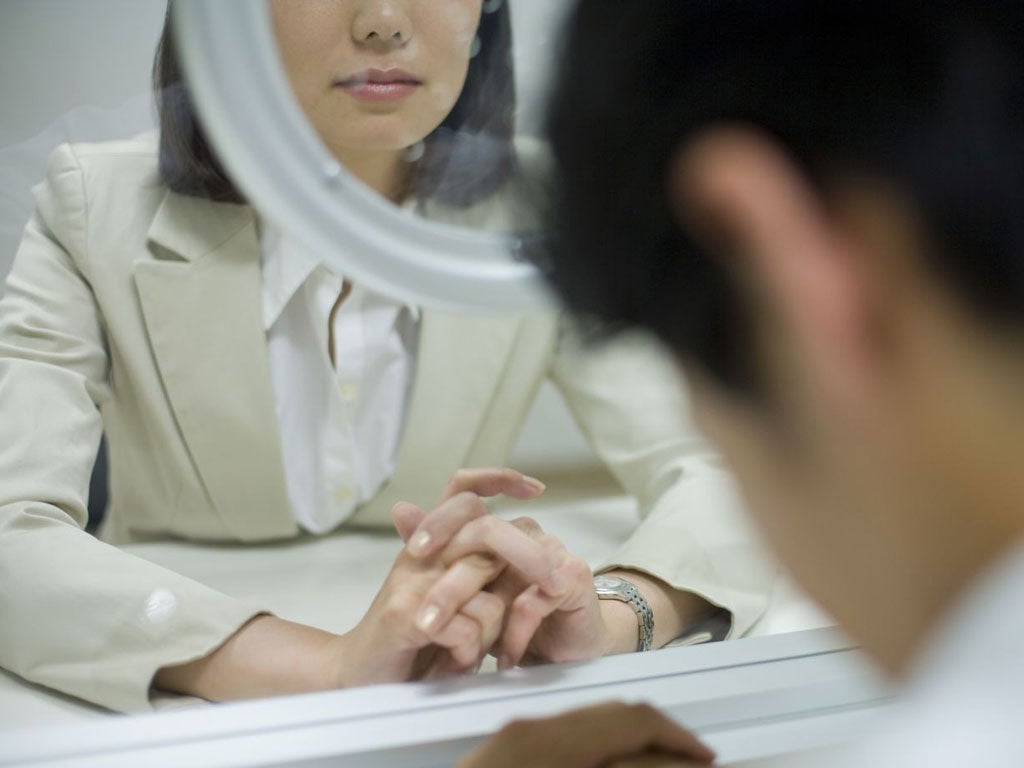The Week In Radio: No escape from reality in a moving inside story

Your support helps us to tell the story
From reproductive rights to climate change to Big Tech, The Independent is on the ground when the story is developing. Whether it's investigating the financials of Elon Musk's pro-Trump PAC or producing our latest documentary, 'The A Word', which shines a light on the American women fighting for reproductive rights, we know how important it is to parse out the facts from the messaging.
At such a critical moment in US history, we need reporters on the ground. Your donation allows us to keep sending journalists to speak to both sides of the story.
The Independent is trusted by Americans across the entire political spectrum. And unlike many other quality news outlets, we choose not to lock Americans out of our reporting and analysis with paywalls. We believe quality journalism should be available to everyone, paid for by those who can afford it.
Your support makes all the difference.Radio has never fully explored the reality format so adored by television. I can't help thinking it's missing a trick here. Imagine the pleasure of hearing Just a Minute's Nicholas Parsons shattering contestants' dreams, in gentlemanly fashion, on an X Factor-style sing off: "You now have 60 seconds on Gloria Gaynor's "I Will Survive". Hesitation! Oh, gracious me, what bad luck!" Or how about a cut-price version of I'm a Celebrity... set not in the Australian jungle but a Birmingham housing estate, with Zane Lowe, Melvyn Bragg and Pam Ayres bickering over Pot Noodle rations?
On the other hand, radio has been dealing in reality, in the real sense, for decades. It's something that it does remarkably well. While few of the long-running arts and magazine shows can resist the lure of a celebrity on the promotional trail, there are plenty of other programmes dedicated to giving a voice to "civilians", as Liz Hurley once described us non-moneyed, non-Botoxed types.
More impressive is that radio doesn't feel the need to inject melodrama when said civilians talk about tough times. Just think what might have happened if Channel 5 had got their paws on Prisoners' Women, Radio 4's grimly revealing portrait of life after a loved one goes to jail. There would have been reconstructed footage of hysterical women clasping the ankles of their husbands and screaming blue murder as a pair of meathead screws dragged them off to the cells. There would have been interviews conducted in silhouette, and the amplified sound of keys jangling and doors slamming. And there would, somewhere, have been Kerry Katona, because, let's be honest, no reality series can claim to get to the nub of human existence without the one-time queen of Iceland enacting mascara-streaked confessionals straight to camera.
In the event, there was no Kerry, no jangling keys and, gloriously, no narration or emotive music to tell us what we should be feeling. Instead it was a simple and quietly dignified programme in which a series of women were recorded describing life on the outside after their fathers, brothers or sons had been sent down.
They told of the lack of support offered to families unfamiliar with the court system, and of the tissue of lies constructed to hide the truth from neighbours, as they couldn't stand to see the disapproval on their faces (one woman drove 40 minutes to the next village to post prison correspondence, for fear of the local post office getting wind of her circumstances). They told of the burden of having to stay afloat financially, and of the humiliation of having their clothes, mouths and hair searched as they made prison visits, as if they too were convicted criminals. While each mother, daughter and wife faced a very different set of problems, all articulated one overwhelming emotion: a crippling loneliness at being the ones left behind.
In Thinking Allowed, Laurie Taylor also shone a light, in sober and moving fashion, on to a group whose problems might not be immediately detectable. Elderly gay men and women, he revealed, suffer greater bigotry in rural areas where attitudes are not always as enlightened as they are in towns and cities. Testimony came in the form of written interviews compiled in a study by Bournemouth University and while most were extraordinary in their pathos, one was unexpectedly comic. It featured a lesbian couple that bought a smallholding in a Cornish hamlet in the late Seventies. "One man took a look at us and fainted dead away," they reported. "And then he removed his cow from our field."
Join our commenting forum
Join thought-provoking conversations, follow other Independent readers and see their replies
Comments